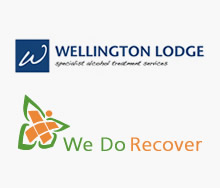Talking People Out of SEO #3: Stop Aiming For The Top
18/10/2012
Unscrupulous SEO agencies, let me count thy ways…
- Thou shalt tout SEO as the be-all and end-all of online marketing which generates masses of free traffic to those with the wisdom to hire thy agency to do it
- Thou shalt pretend complete ignorance of the term ROI
- Thou shalt make enormous promises of boosting Google rank and getting websites to the first page without making reference to personalised search
- Thou shalt guarantee top spot for overly specific long tail keywords which are not necessarily relevant to thy client’s business needs
- Thou shalt measure results purely on the basis of rankings or page traffic rather than meaningful business metrics
- Thou shalt not provide any useful reports or insights on work carried out each month except thy invoices to thy client
- Thou shalt content spam, link spam, article spin and generally use incredibly black hat SEO tactics, in thy mercy…
 In the first part of this series of seven articles examining reasons not to do dedicated search engine optimisation work on a website, we looked into the reasons why SEO might not be the be all and end all of online marketing in your business sector. In the second we discussed how the use of SEO and other online marketing activities should be governed by projected return on investment for each activity. Now we’re going to look at one of the most common promises made by dodgy SEO firms and why modern search engine algorithms make aiming for the top spot a completely redundant aim for today’s marketers.
In the first part of this series of seven articles examining reasons not to do dedicated search engine optimisation work on a website, we looked into the reasons why SEO might not be the be all and end all of online marketing in your business sector. In the second we discussed how the use of SEO and other online marketing activities should be governed by projected return on investment for each activity. Now we’re going to look at one of the most common promises made by dodgy SEO firms and why modern search engine algorithms make aiming for the top spot a completely redundant aim for today’s marketers.
First and foremost, there’s no such thing as top spot today. What I see at number 1 won’t be the same as you, your mum or even your uncle Bob. Modern search engines – and yes, Google was the pioneer here – use a technique called personalised search. This means that every time you visit a website, cookies (small text files) are placed on your computer to track your usage, effectively leaving a little breadcrumb trail of your interests and preferences behind. Then, the next time you search, all that data and history is taken into account to give you a personalised version of search results.
The idea is that instead of throwing up things in a relatively arbitrary order, the search engine shows you things which are both related to the term you searched for and relevant to your interests. So if you regularly visit Thorntons for your sugar hit and then happen to search for chocolate eggs, Thorntons will appear higher on your search results than it would on someone who had never (or more rarely) visited the Thorntons website. Google even takes things a step further – if you clicked onto a website but then bounced straight back off and went elsewhere, that website will be ranked lower for you because you didn’t seem to like it. This applies to paid ads too – different people will see different results on Adwords depending on search and browsing history.
This is why when someone says “I want to appear #1 for my search terms x, y and z” an ethical SEO provider should give them a slap, or at the very least take the time to explain how personalised search works and why that request actually makes no sense. Anyone who just nods and takes your money is either lying through their teeth or doesn’t really understand how modern search engines work – neither a particularly desirable trait in a search engine marketer.
So why are there still tools like Rank Checker out there and why are so many people still talking about your search engine “rank” in terms of an absolute? Well, the simplest answer is that a lot of search marketers – or at least people claiming to be search marketers – don’t actually understand personalised search, or are just taking advantage of the many businesses and consumers who need their services and don’t understand it at all. There’s something to chew on.
In more depth, search engine ranks do show a sort of progress. While they aren’t an absolute measure (“look Mom, we’re top again!”) they can show whether you’re heading in the right direction or not provided you exclude personalised search – if the numbers head towards one things are good, whereas if they start to look bigger then something’s gone wrong. Use incognito mode, clear your history and cookies regularly, or just tick on the “don’t use personalised search” option which most rank checking tools offer in order to minimise the impact of personalised searching on your marketing work. Google Webmaster Tools also helpfully offers a more meaningful metric, the “average position” of keywords in search results taken over all impressions for a given period of time. Now that’s a good metric to start talking about – if only we could get people to understand why.
Hopefully you do now. So go spread the word. Now. Quick. Take my car – really, it is so important for businesses to understand this and so heartbreaking that so few do. You can even do some experiments at home with a handful of keywords, two websites and twenty minutes of time you really have nothing better to fill up with. Or you can take our word for it and start basing your search marketing work on meaningful figures like conversion rate, unique visitors and total return on investment. I’ll leave you to work out which is the better business choice.
If you’re baffled by blogs and lost in links, pick up the phone and call 0330 555 4680 today to find out how Cornish WebServices can help you build a sensible and sustainable set of online marketing to include SEO, PPC, social media and more.
PS we build beautiful websites too!






















